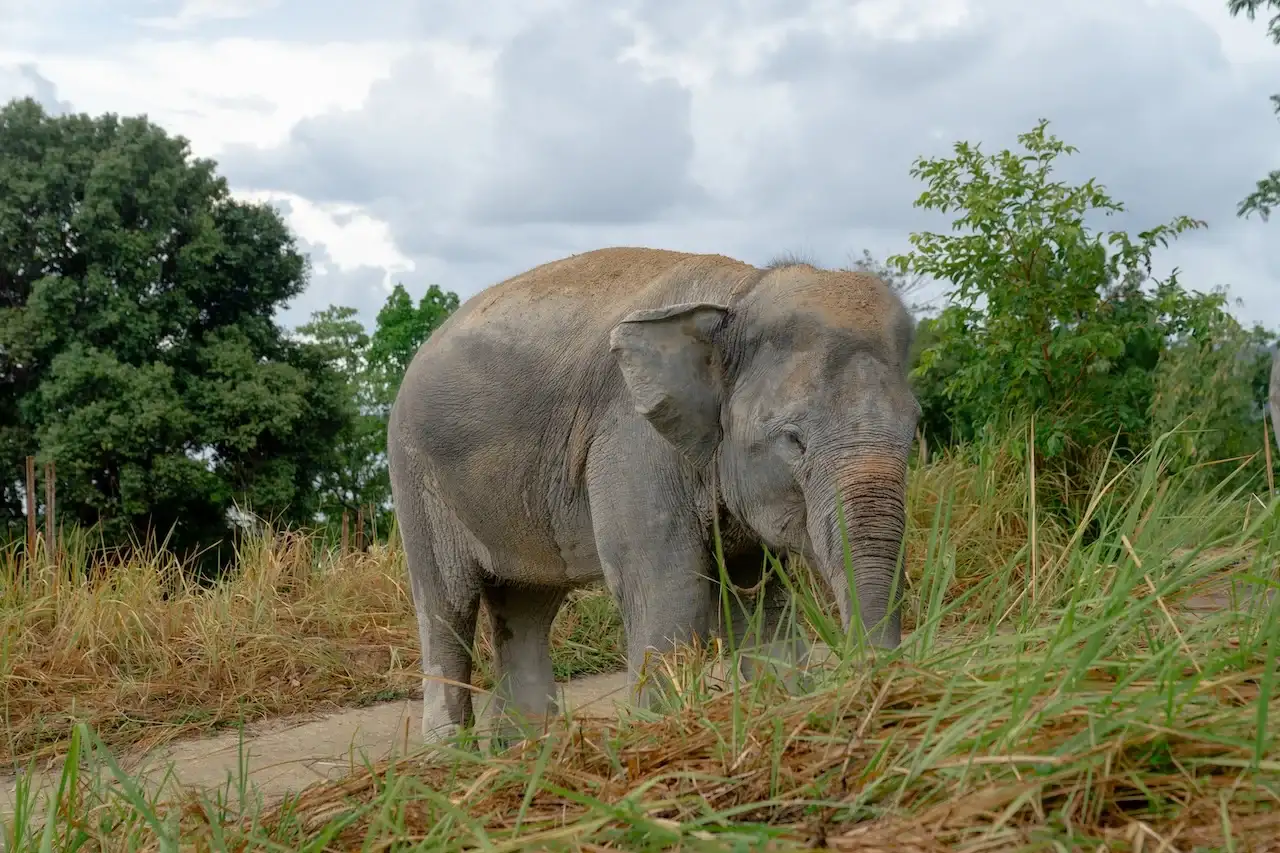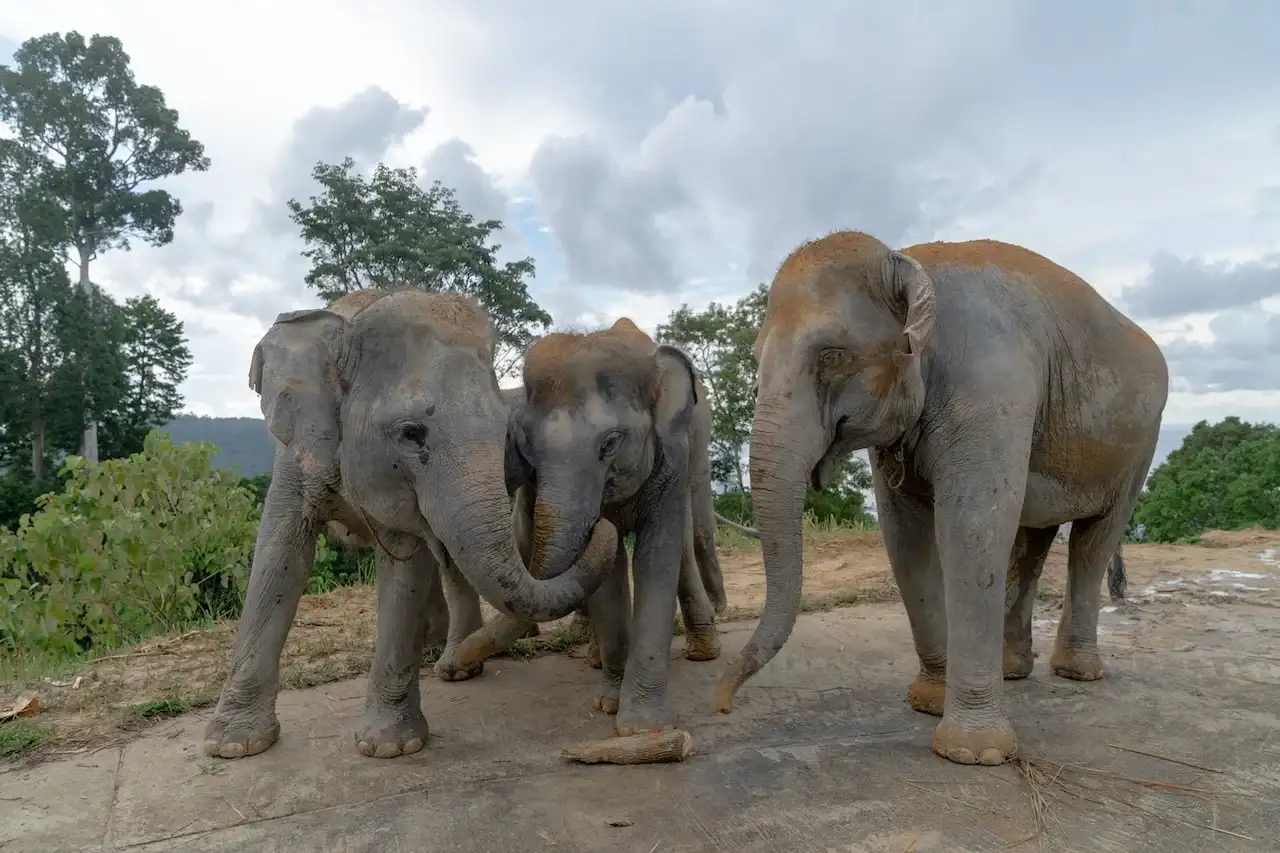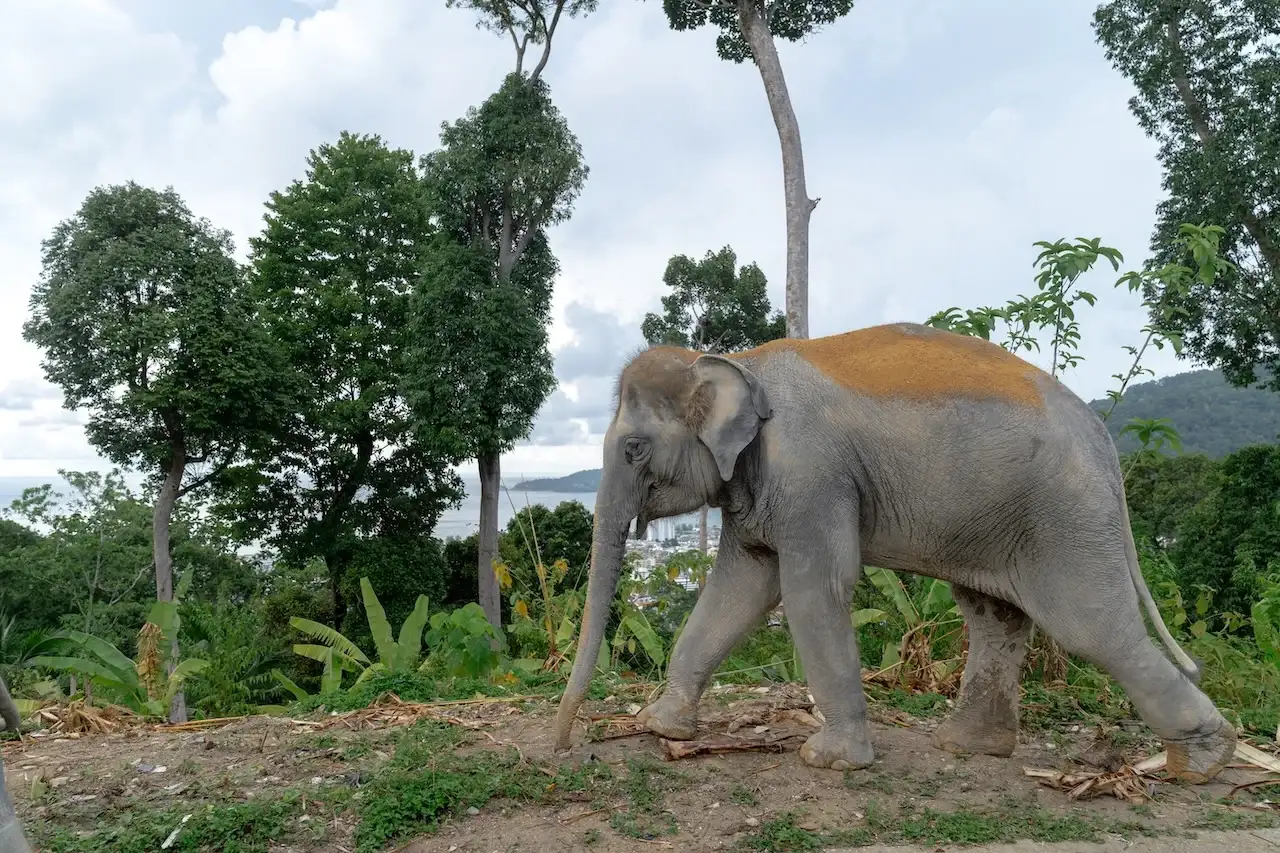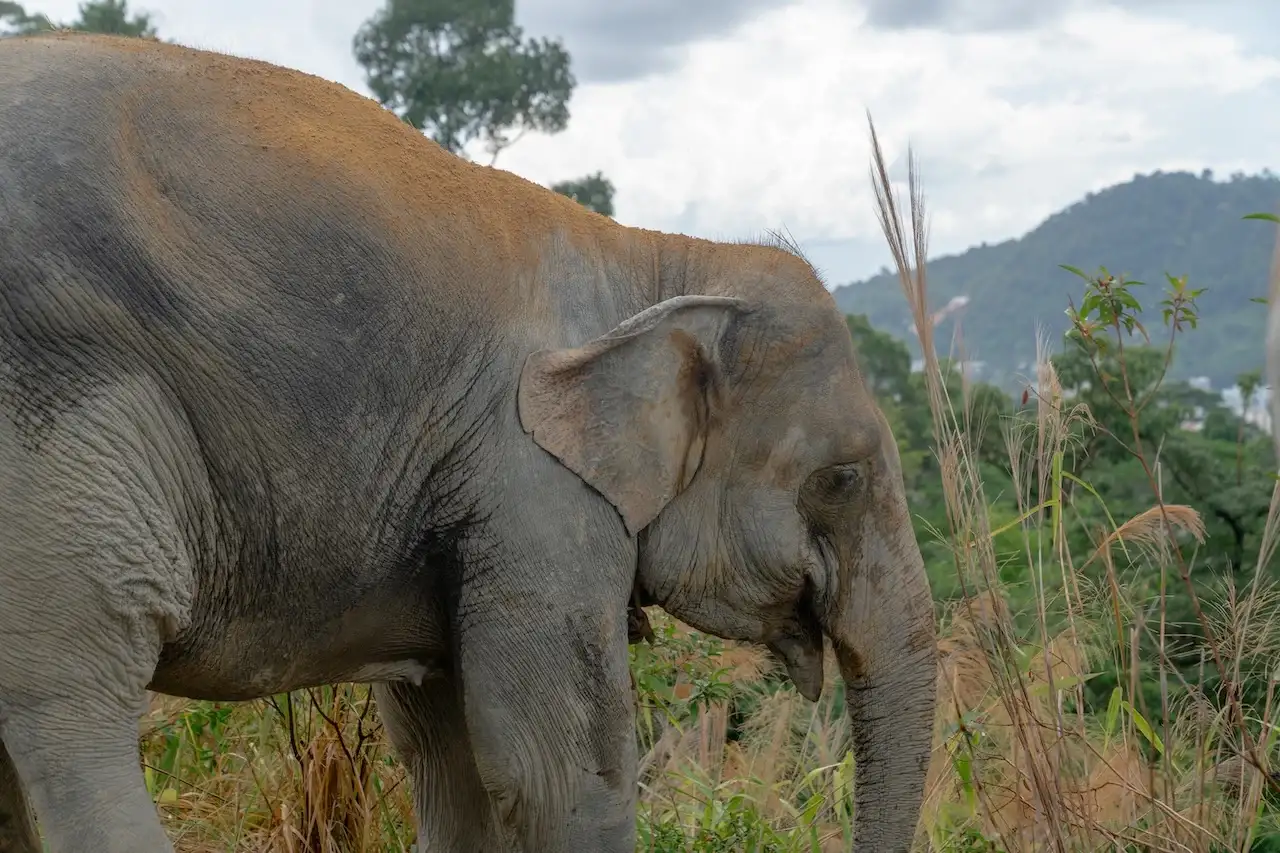Walking Beside Giants in Patong
Patong Beach in Phuket is often described with words like chaotic, neon, loud. Backpackers spill into bars, tuk-tuks rattle through the streets, and the air hums with the sound of beach parties stretching until sunrise. Yet, less than fifteen minutes inland, the rhythm changes completely. The soundtrack becomes the rustle of bamboo leaves, the soft thud of heavy footsteps, and the gentle trumpet of elephants reclaiming their freedom. This is where I found myself one morning — walking beside giants.

First Impressions
I had read about Hill Tribe Elephant Village, a family-run sanctuary tucked away in the green folds behind Patong. The promise was simple: no riding, no tricks, no bathing. Instead, the chance to meet elephants on their terms, not ours. What struck me first wasn’t the sight of elephants, but the silence. The usual chaos of Phuket seemed to vanish as I stepped onto the shaded trails. Then, a figure emerged — not a tuk-tuk, not a motorbike, but a towering elephant named Mali.
She moved slowly, her ears flapping gently, eyes soft yet deep with a history I could only guess. Beside her walked her caretaker, a hill tribe man whose family had cared for elephants for generations. He didn’t carry a stick or shout commands. He simply walked, and she chose to follow.
“Here, elephants are not here to entertain us. We are here to walk with them, to learn, and to respect.” — Guide at Hill Tribe Elephant Village
Stories Written in Wrinkles
Every elephant here has a backstory. Aussie, the playful teenager, once performed in a circus — forced to balance on stools and bow for claps. Mon Caan, quiet and shy, lost his mother far too early and still carries the loneliness of that loss. Tad Daow, gentle and reserved, used to carry tourists up steep jungle trails until her back grew tired. And Chan Horm, the social butterfly, once marched in shows for travelers who cheered but never saw her pain.
Hearing their stories while standing a few meters away changed the way I looked at them. These weren’t animals put on display. They were survivors, finally living with dignity. Watching Mali tear bamboo from the ground with surprising grace was more moving than any performance could ever be.

The Walk
The heart of the experience was simple: walk. Not behind them, not on top of them, but beside them. The trail wound through a forest alive with birdsong and the earthy scent of rain-soaked soil. Every step echoed — my light footfalls alongside the deep, steady thud of elephant feet. I realized I wasn’t guiding them. They were guiding me.
We paused as Aussie splashed herself with dust, tossing it over her back like glitter. A few minutes later, Mon Caan stopped to scratch against a tree, sending a shower of leaves to the forest floor. These weren’t staged moments. They were raw glimpses into their personalities, each elephant reminding me that they are individuals, not props.
Learning Through Connection
The guides weren’t just caretakers; they were storytellers. As we walked, they explained elephant behavior, the importance of food variety, and the daily routines of care. I learned that an adult elephant eats up to 150 kilograms of food a day and that dust baths protect their skin from sun and insects. But the most important lesson wasn’t scientific. It was emotional: respect. Respecting their space, their pace, their choices.

Why It Matters
Phuket has long been criticized for unethical elephant tourism. Riding camps and shows once dominated the island, leaving behind scars — both on elephants and the industry’s reputation. But places like Hill Tribe Elephant Village are rewriting that story. By choosing to walk instead of ride, observe instead of demand, travelers become part of a shift toward responsible tourism. This isn’t just about elephants; it’s about changing what travel stands for.
I thought about the thousands of people partying on Patong Beach that same morning, unaware of the quiet revolution happening just a few kilometers away. Tourism doesn’t have to harm. It can heal.
Walking Away Changed
By the end of the walk, I was dusty, sweaty, and smiling. Mali flapped her ears as if to say goodbye, while Aussie tried once more to snatch an extra banana. I didn’t just see elephants that day — I walked beside them, shared their forest, and carried their stories with me. Travel often promises transformation, but this time, it delivered.

Walking beside elephants isn’t a bucket list item. It’s a reminder that the best travel experiences are those where we step gently, listen deeply, and leave the world a little better than we found it.